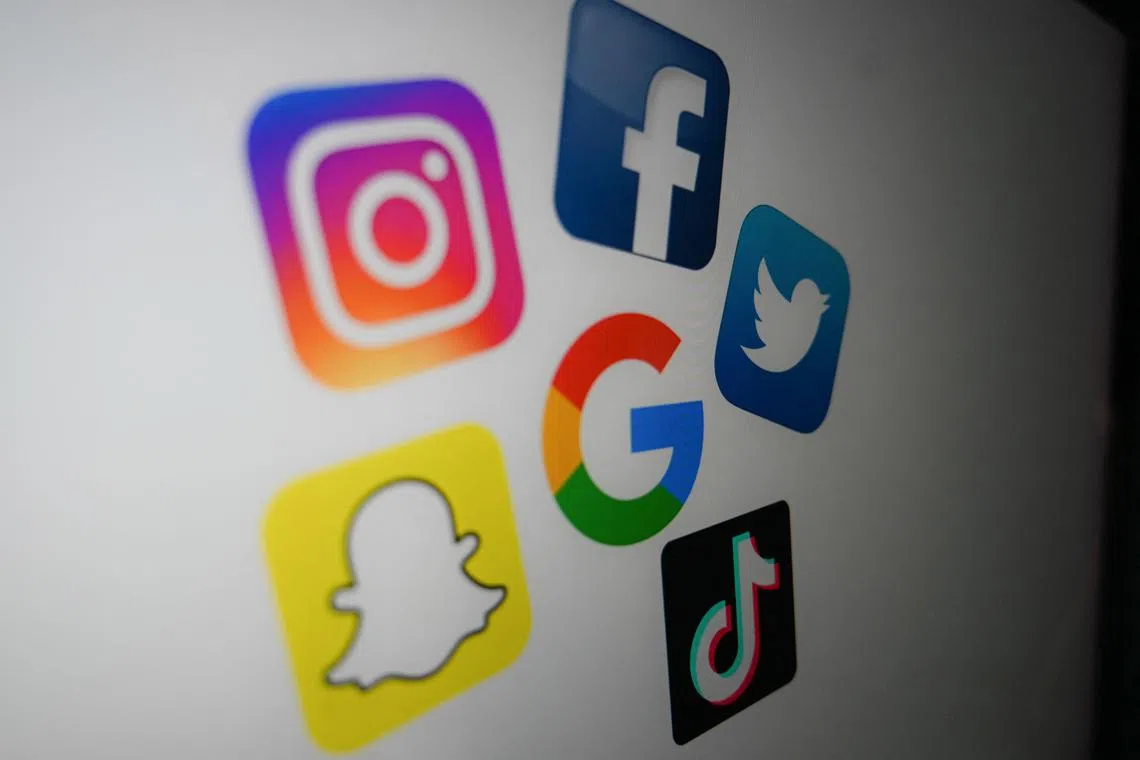Inquiry in Australia considers WeChat ban over security and influence risks
Sign up now: Get insights on Asia's fast-moving developments

The Australian inquiry on Tuesday heard from major social media firms but WeChat refused to appear.
PHOTO: AFP
SYDNEY - WeChat has come under attack in Australia over its failure to appear at a parliamentary inquiry into foreign interference, fuelling calls for the popular Chinese app – used by a million people in Australia – to be banned.
The inquiry, which is looking at the risk posed to Australia’s democracy by social media, heard from major social media firms on Tuesday, including Twitter, TikTok, Google and Meta, which owns Facebook, Instagram, WhatsApp and Threads.
But WeChat – which is used daily by 47 per cent of the country’s 1.4 million Chinese Australians, according to Lowy Institute research – has refused to appear.
The chairman of the inquiry, Mr James Paterson, wrote to Tencent, the company which owns WeChat, to warn that a failure to appear could increase the likelihood that the inquiry would recommend a ban.
“The committee has heard disturbing allegations that WeChat has been used to intimidate and harass Chinese-Australian human rights activists and their families overseas in an apparent campaign to stifle their freedom of expression,” wrote Mr Paterson, an MP from the opposition Liberal-National Coalition.
In response, WeChat on Monday said it did not have local employees in Australia and could not attend the inquiry.
Addressing the inquiry on Tuesday, Mr Paterson said: “If WeChat believes (the committee’s) recommendations are unfavourable to their interests, then they will have no one to blame but themselves.”
In April, the federal government banned the use of TikTok on government devices
TikTok representatives appeared at the inquiry on Tuesday, denying that the app was a security risk or that it filtered content for political reasons. Asked whether the app would hand Australian user data to Beijing, TikTok Australia’s public policy manager Ella Woods-Joyce told the inquiry: “We’ve never been asked for that user data, and we would not provide it if we were asked.”
The inquiry follows growing concern about the spread of political misinformation on social media
The nation’s domestic spy agency, the Australian Security Intelligence Organisation, has warned that a “surprising” range of countries have been attempting to influence Australian democracy.
In the lead-up to last year’s federal election, the agency’s head Mike Burgess revealed that agents of a foreign government – reportedly China – had been caught trying to fund the election of candidates who either supported that government or were deemed vulnerable to influence.
Some analysts have warned that WeChat is subject to Chinese Communist Party control and could be used to spy on the Chinese-Australian community or to exercise influence by controlling the messaging and information that users receive.
In a written submission to the inquiry earlier this year, WeChat said it was committed to providing a safe platform that enables the “free flow of legitimate information and communication”, noting that it cooperated with Australian regulators and law enforcement authorities.
It said personal information of Australian users is stored in Singapore, and the app’s service in Australia is provided by WeChat International, a Singapore entity that is owned by Tencent but is not governed by Chinese law.
Some experts have opposed a ban on WeChat, pointing out that it is popular with the Chinese-Australian community for various uses, including communicating to family members and business partners in China because other apps such as WhatsApp and Facebook are banned in China.
Professor Wanning Sun from the University of Technology Sydney and Professor Haiqing Yu from RMIT University said banning WeChat “risks causing emotional, psychological and practical harm to a significant number of our community”.
“WeChat is one of the social media platforms that Chinese Australians use to inform themselves about Australian government policies,” they wrote in a submission to the inquiry.
“Banning WeChat brings more damage than benefit to our democracy, since it is likely to erode rather than encourage faith in the strength of our democracy, and it is likely to infringe on citizens’ rights to communicate on social media platforms.”
The inquiry is due to complete its report by Aug 1.



